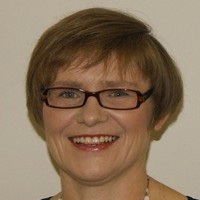Prostitution and Gender Equality
TORL engaged partners and policy makers in a wider discussion in relation to the societal consequences of prostitution as an institution that undermines gender equality and violates women’s human rights. The campaign rejected the promotion of prostitution as a private individual transaction between two adults which fails to recognise the impact of the commercial sex trade on the lives of all women and on society in general. The campaign highlighted the commodification and objectification of women that is inherent in the sex trade and how prostitution promotes the idea that some women must be available for sale to satisfy men’s sexual needs. The declarative and normative aspect of the Nordic approach was highlighted, in sending out a clear statement that prostitution is harmful not only to the individual prostituted woman or child, but also to society at large.
TORL illustrated how the buying of a person for sexual gratification, primarily women and girls (although the law is gender neutral), is regarded in Sweden as contrary to achieving equality between women and men and to the dignity and human rights of all people; it seeks to give young men and women the message that buying a person for sexual gratification is not normal, acceptable or harmless behaviour. Criminalising the purchase of sex was considered necessary because ‘gender equality will remain unattainable as long as men buy, sell and exploit women and children by prostituting them’.1 (Ministry of Industry, Employment and Communications, 2005.)
TORL rejected the accusation by those promoting sex work that it is moralistic and repressive to hold a position against prostitution. The campaign stated that it is legitimate to hold an ethical position that buying a person for the purpose of sexual gratification is an act of sexual exploitation by the buyer which is unacceptable. By not taking a position on men’s ‘right’ to prostitute girls and women it was argued, we are in fact accepting that a group of women and girls will be set apart where the normal standard of human rights laws and protections do not apply.2 The role of the state is to follow international human rights standards and ensure that all girls and women have ‘a right to be free of inhuman and degrading treatment’ which is not possible in the commercial sex trade.3
The National Women’s Council of Ireland was a key partner in promoting the importance of the law for gender equality and for women’s human rights.
Statement by the National Women’s Council of Ireland (NWCI) –The role of a gender analysis
|
Footnotes
1Swedish Ministry of Industry, Employment and Communications, Fact Sheet: Prostitution and Trafficking in Human Beings, 2005.
2Ekberg, G. (2004). The Swedish law that prohibits the purchase of sexual services. In Violence against Women 10 (10), 1187-1218.
3The European Convention on Human Rights.
